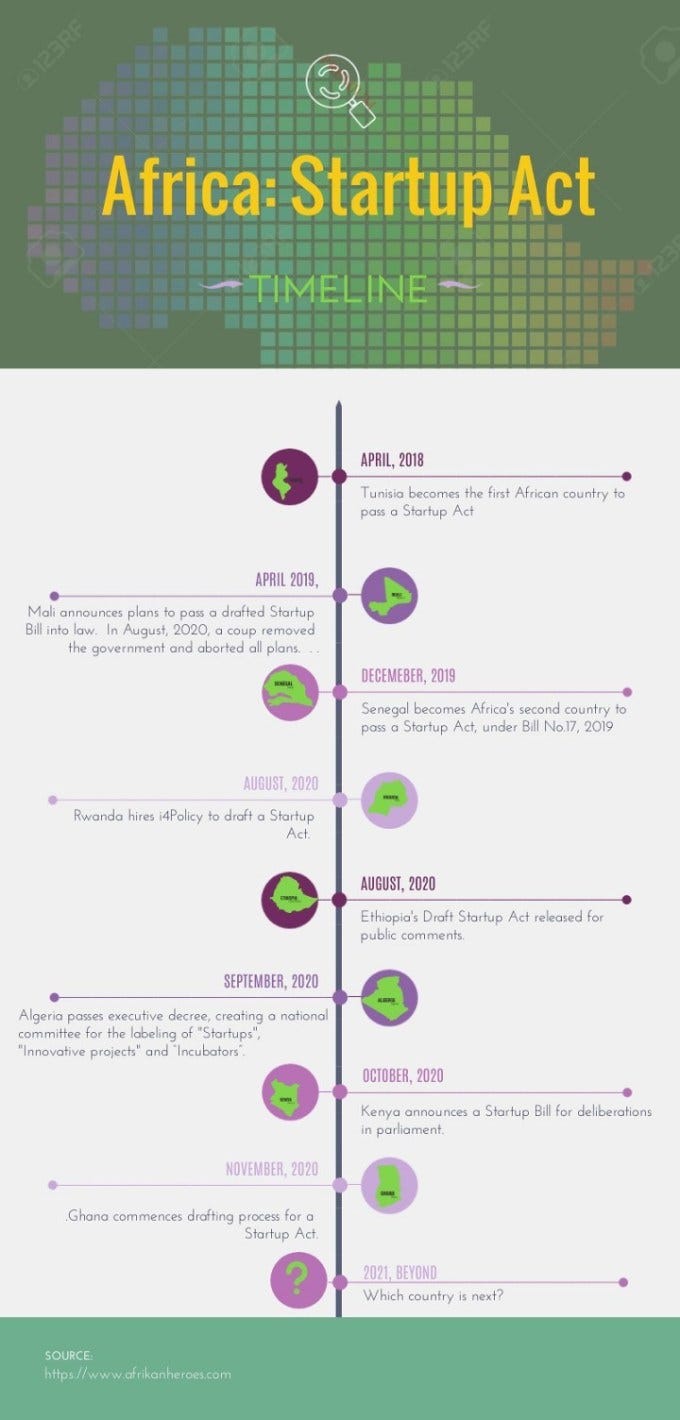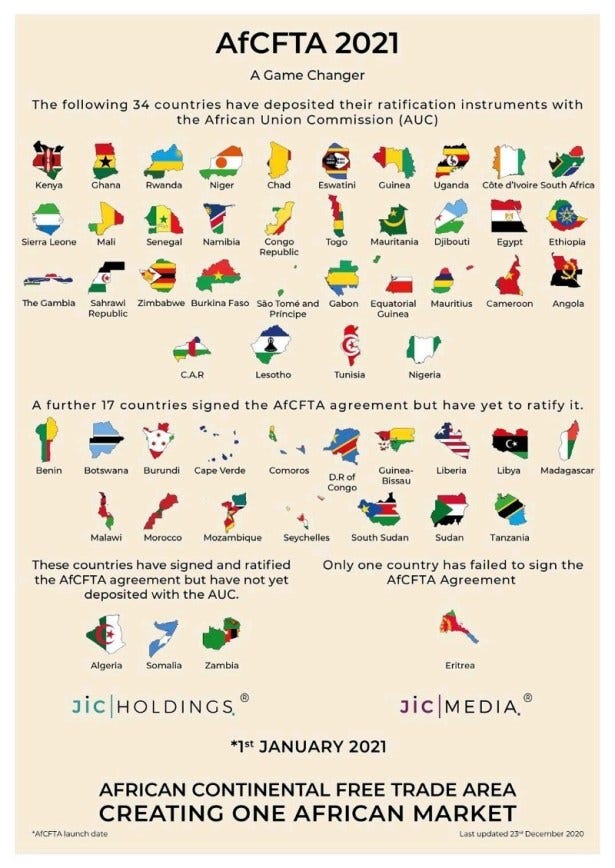The coronavirus-infested 2020 has finally gone, but its fears still linger. Apart from defining that year in terms of the pandemic, it would also go down in history as the only year that really tested the resilience and elasticity of the continent’s nascent startup ecosystem. With prolonged lockdowns and official declarations against physical meetings, the continent’s startups were denied access to their critical markets as well as funding. Many died. Many are yet to recover. But while the continent’s startup founders ponder over these memories, the new year — 2021 — however, would most likely present some of the biggest opportunities for the startup ecosystem yet.
What Should African Startups Expect From The Year?
Coronavirus, Insistent; Or A Related Pandemic?
The world is not entirely healed from the coronavirus pandemic, and so there is every reason to still prepare for the worst. African startups should, therefore, not jubilate yet. However, the proliferations of curative medicine for the virus has restored some hope, although speculations remain rife as to how soon African countries will have access to enough vaccine doses to cater to the continent’s 1.2 billion people. Take for instance, the People’s Vaccine Alliance — a coalition of campaign organisations including Oxfam, Amnesty International and Global Justice Now — has condemned rich countries for “hoarding” vaccine doses to the detriment of poorer nations.
“Canada tops the chart with enough vaccines to vaccinate each Canadian five times. Updated data shows that rich nations representing just 14 per cent of the world’s population have bought up 53 per cent of all the most promising vaccines so far,” the alliance said in a statement.
Founders should, therefore, still stay on high alert. Check out our prediction on how the coronavirus would affect access to venture capital for African startups in 2020. If you are a founder, how has Sequoia Capital’s early warning message for surviving the pandemic helped you?
A Year of the Startup Act
Undoubtedly, 2021 may be the best year yet to found a startup in most African countries. For instance, founders in Tunisia — Africa’s first country to pass a Startup Act — would most likely have increased access to funding under the country’s Startup Act. Recall that Smart Capital, a Tunisian organisation in charge of administering the country’s Startup Act had announced new waves of funding commitments in support of the country’s startup ecosystem. Tunisian startups should, therefore, expect, apart from being given “startup labels”, the possibility of being directly funded, courtesy of the Startup Act.
This is also the case for startups in Algeria. The year 2021 will be great for them in terms of taxation and promotion of their ventures. First, the country’s recent decree creating a national committee for the labelling of startups, incubators and innovative projects is a big game changer. Consequently, as a result of the decree, from 2021, labelled startups in the north African country will pay zero tax on their corporate profits, VAT and professional services. The country has also, recently launched a national fund for startups. And with the 27-year-old startup minister, Oualid El-Mahdi Yacine, still at the helms of affairs in the country, a lot of positive developments might also be recorded.
For startups in other countries like, Ghana, Ethiopia, Rwanda, Kenya, (Mali), Congo and others, 2021 would most likely be that year they land a life-changing legislation on how they operate. Startup Acts (in Tunisia and Senegal) have made a lot of difference for the countries’ burgeoning startup ecosystems.

A Single Market Opportunity Under AfCFTA
2021 will also be a great year for African startups in terms of the market opportunities presented by the African Continental Free Trade Agreement (AfCFTA). The operational phase of AfCFTA which will enter into force today, the 1st of January, 2021, will cover a market of 1.2 billion people and a combined gross domestic product of $2.5 trillion — making Africa the world’s largest free trade area since the formation of the World Trade Organization seven decades ago. AfCFTA will greatly assist startups in Africa in their quests for international expansion, by reducing the regulatory and financial costs of such expansion. With AfCFTA, Twiga Foods in Kenya, for instance, can easily move agricultural produce across African borders with less tariffs and customs duties than it was previously used to. Startups that will benefit greatly from the agreement are those in the logistics and transport sectors, who do logistics across borders. Find out more on how the agreement may help your startup in 2021 here.

Increase In Local Venture Capital Funds
This would most likely be one of the greatest features of the year 2021. With Paystack’s $200m acquisition by payments company Stripe, increasing interests by influential figures around the world on the continent’s startup ecosystem as well as the continuing democratization of access to funding through the setting up of micro funds by local startups themselves, more locally founded venture capital funds may most likely sprout across Africa in 2021. With this, comes access to funding to most startups in Africa.
In any case, 2021 would, also, most likely see the highest investment deals ever, especially as most investors may unleash cash hoarded as a result of the coronavirus pandemic.
Locally made funds are necessary in Africa because according to African Private Equity and Venture Capital Association 2019 VC report, North American investors represented 42% of the total number of investors that participated in VC investments on the continent between 2014 and 2019, followed by European based investors at 23%. African based investors accounted for only 20%, followed by Asia-Pacific (8%) and investors based in the Middle East (6%). This, perhaps, shows why the continent lags behind other continents in terms of funding available to its startups ecosystem.
Funding Predictions?
2021 would most likely see fintechs retaining the largest investment percentage within the African startup investment ecosystem. However, a successful and hitch-free AfCFTA may see increased investments in logistics and transport startups. Increased adoption of 5G network may also further enhance the democratisation of internet access and speed on the continent’s major cities, with startups in the ecommerce, video-on-demand or entertainment sectors greatly benefiting. Investors may, most likely, also look in the direction of healthcare startups, especially as most African governments are increasing their 2021 budget amounts to that sector (see Nigeria, etc). In any case, if Kenya insists on its mulled plans for regulating off-grid companies, off-grid startups in the east African country may witness a major lull in investment.
A Seamless Journey
As 2021 sets in, Afrikan Heroes wishes African startups and founders seamless journeys throughout the 12 months of the year. And although the world would still spend much of the new year extricating itself from the fangs of the coronavirus, there is still a huge hope for both the continent’s founders and startups.
All we wish for are less failure, more access to funding (especially to women founders) as well as less strangulating legislations that saw the deaths and unsavoury turns of events for so many startups on the continent in the year gone.
A Very Happy and Profitable New New Year!!!
Charles Rapulu Udoh

Charles Rapulu Udoh is a Lagos-based lawyer who has advised startups across Africa on issues such as startup funding (Venture Capital, Debt financing, private equity, angel investing etc), taxation, strategies, etc. He also has special focus on the protection of business or brands’ intellectual property rights ( such as trademark, patent or design) across Africa and other foreign jurisdictions.
He is well versed on issues of ESG (sustainability), media and entertainment law, corporate finance and governance.
He is also an award-winning writer
